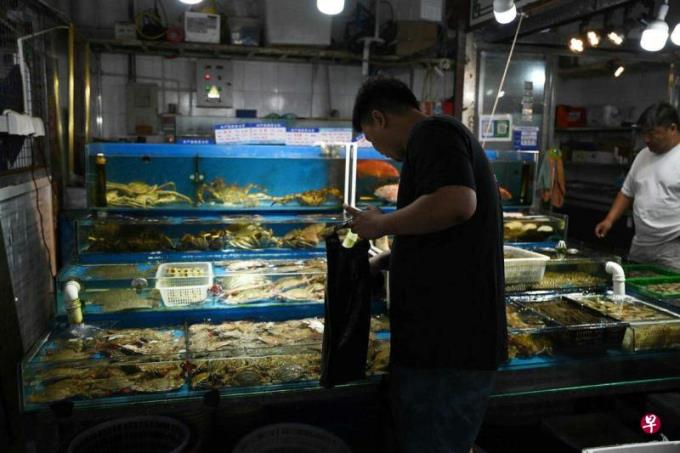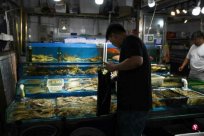
(Beijing Comprehensive News) Japan officially launched the Fukushima nuclear waste water to discharge the sea on Thursday (August 24). China announced on the same day that the imported origin of the original place is Japanese aquatic products, including edible aquatic animals.Worried about the pollution of sea water, Chinese residents began to panic to buy edible salt, and iodized salt was sold out in many places.
The China Customs General Administration issued the above announcement on the official website shortly after starting a nuclear waste water discharge in Japan, emphasizing that this move is the risk of radioactive pollution caused by food safety caused by the comprehensive prevention of Japan's Fukushima nuclear waste water.People are healthy and ensure imported food safety.
China's latest ban has expanded to Japan.Prior to this, China banned the imports of aquatic products in ten counties in Japan, including Fukushima Prefecture, Tokyo, Chiba Prefecture, etc., and strictly reviewed food documents for foods from other parts of Japan, especially aquatic products.100 % inspection.
The Ministry of Ecology and Environment of China also posted on WeChat accounts on Thursday, saying that it attaches great importance to the issue of Fukushima nuclear waste water in Japan.It is judged that Fukushima nuclear waste water is possible on the possible impact of China's marine radiation environment.
The relevant person in charge of the Ministry of Ecology and Environment criticized that the Japanese government forcibly launched the Fukushima nuclear waste water to discharge the sea, and led a self -interest to the long -term well -being of all human beings, "extremely selfish and irresponsible."
The Ministry of Foreign Affairs of China stated on the official website on Thursday. The spokesman said that the Chinese side expressed his resolute opposition and strong condemnation, and had proposed to the Japanese side with a serious negotiation and asked the Japanese side to stop the wrong behavior.
A spokesman criticized that what the Japanese side did was to pass the risks to the world, continuing the pain to the descendants of human beings, and pointed out that the Japanese side put the nuclear waste water in a row, and also placed itself in the international defendant.Square, "will be condemned by the international community for a long time."
Mainland China is the largest export market in Japanese aquatic products. Hong Kong ranks second, and the sales of the two places accounted for about 42%of the total exports of Japanese aquatic products.According to Reuters, Japan exported about $ 600 million ($ 813 million) aquatic products to Mainland China last year.
On the Chinese social platform, netizens almost support the decision to prohibit the import of Japanese aquatic products.Some netizens said that it is best to be cautious, not just Japanese aquatic products, but also a question mark on food from Japan.
Because of concerns about the pollution of seawater, the phenomenon of buying edible salt in many places in China.According to Reuters, on the takeaway websites in some areas of Fujian, Beijing, and Shanghai, several brands of edible salt were sold out on Thursday.Some netizens shared their experiences of accumulating salt. On social media, there were pictures showing that a supermarket in Beijing was empty.
Industry organizations and relevant departments of Fujian and Guangdong in the coastal province have soothed consumers.Wang Xiaoqing, Executive Chairman of the China Salt Industry Association, urged the public not to store salt, saying that China has strict food safety regulations that domestic salt volume can meet demand.


